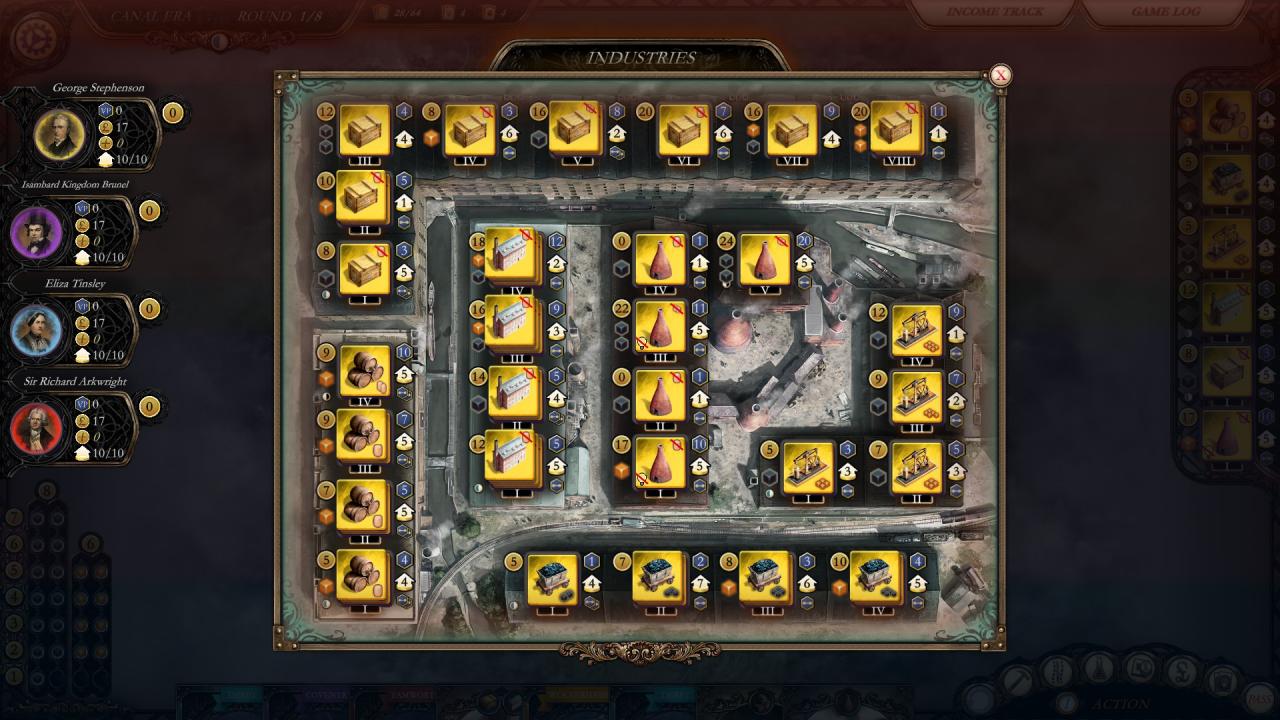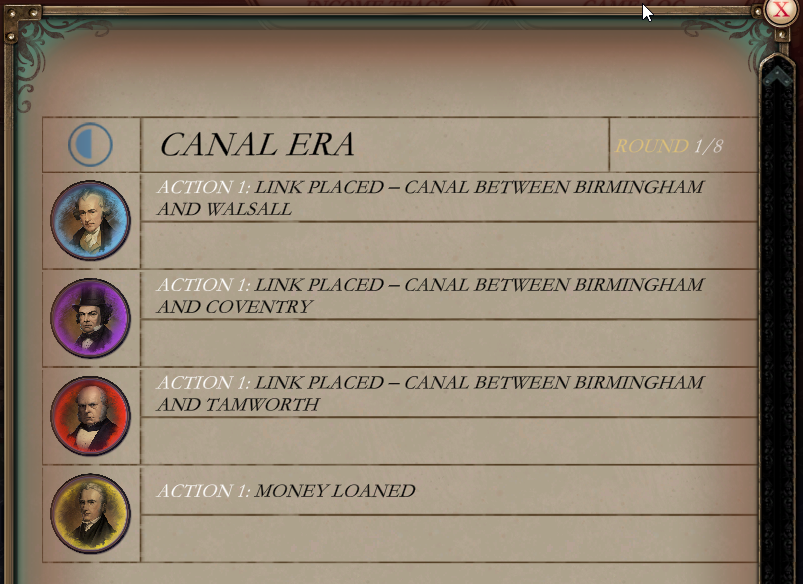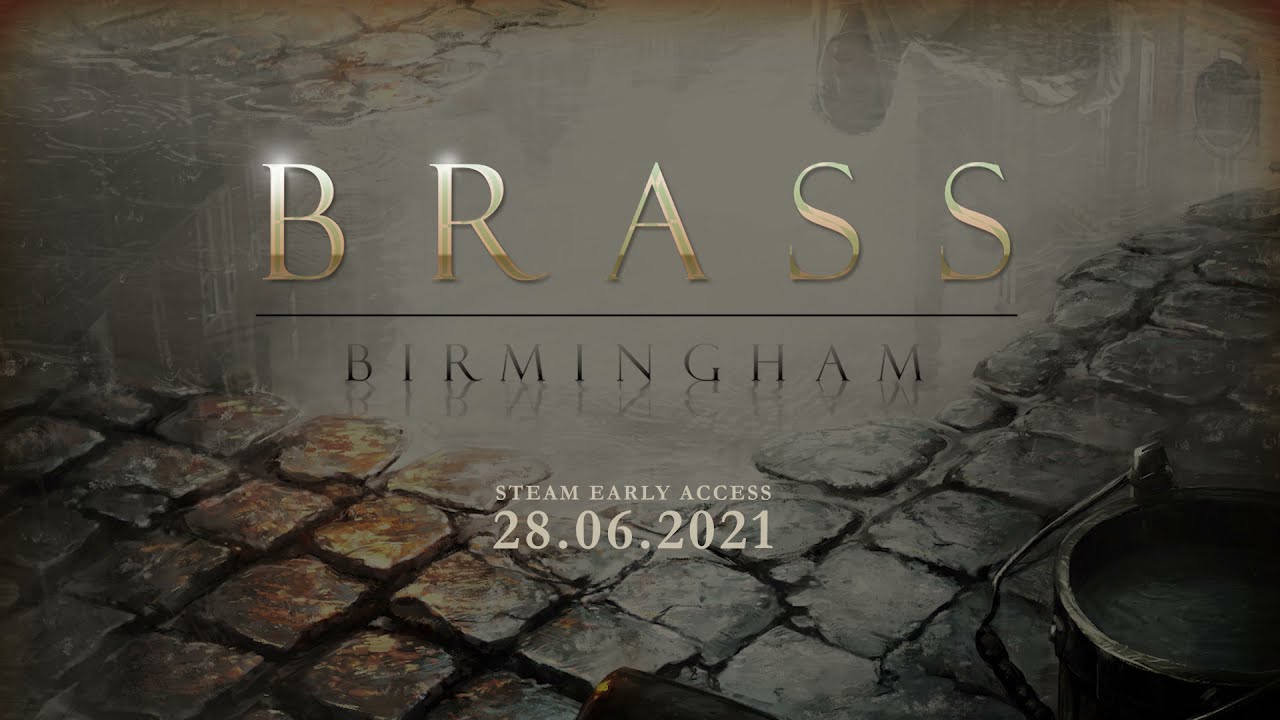Brass Birmingham is a complex game with many strategies, this guide is intended for those just starting out and helps you optimise your games and avoid too many simple mistakes.
Introduction
So where to begin…..this guide helps explain some of the common pitfalls that a new player can fall into.

1. Over-producing Coal
Coal mines when flipped produce very few VPs and so a coal strategy isn’t likely to help you win directly. Conversely though other players will be able to use your coal and produce industries, Cotton Mills and Manufacturers which will produce better points, helping them out compete you by the end of the game.

Coal is key to building railways in the railroad era which can provide valuable points through the links attached to industries. However, be aware of providing too much coal to opponents and giving them easy builds and points in this era. Try to time coal builds to gain cash from filling the market and then use it yourself in the second action of your turn, ideally using two by building two railroads with a beer.
2. Not developing enough

Beginner players will often under value how often they should develop. Remember that any level II industries (and above) that you build in the canal era will be scored twice, once at the end of each era (level I industries are removed at the end of the canal era and so won’t score in the rail era). £ per point these later industries are also more effective use of your build actions, helping you build up your turn efficiency (gaining more points per action).
Therefore, use your develop actions in order to remove Level I Cotton Mills early, ideally flipping your Steel Mills. A great winning strategy is often building Level II and III Cotton Mills in Canal era.
Similarly, be conscious of offering your opponents too much easy access to iron in the canal era by offering them easy Steel Mills. Steel Mills need coal therefore make your opponents build canals to get access to coal and avoid places for Coal that offer the opportunity to place a Steel Mill there, such a Coalbrookdale.

3. Too many canals, not enough railroads
With more link points on offer in the rail era, along with the benefit of being able to lay two railroads per action with beer, then one objective could be to build out as many railroads as possible – assuming there is beer available (generally if there is a lot of beer available it will favour those building railroads, if there isn’t then those building industries will have the advantage).
4. No focus with Industries
- assess you hand for locations, in two-player for instance then Kidderminster and Worcester are key to building out Cotton Mills. Stafford and Worcester are key to potteries.
- building out a Level I pottery in Canal is just as many points as building it in Rail Era (since it will be removed) therefore if you’re going for potteries try to get Level III out too in Canal where possible.
- as mentioned earlier then develop away early Cotton Mills to allow access to more efficient builds if going for a Cotton strategy
- Manufacturing Goods can be a harder strategy to see for beginners, as it is more situational but crates offer a number of uses. Use their double links (I and V) next to your links, use the no link points next your opponents connections (III and VII), also use them when no beer is available for a late sale (III and VIII).
5. Under-valuing Beer
Don’t worry about using your opponents beer, you may be helping them but very few games have an abundance of beer and so grab it while you can. You can then build your own later. Watching for opportunities to grab your opponents beer and prevent them sales during the late game will often be a game winning strategy in a beginner game.
6. Free actions to grab turn order
For example using a loan or scout on the first move can help put a player in a key position to get a Steel Mill down in the second round by allowing a coal mine followed by Steel Mill in Coalbrookdale, say.

Always look for opportunities to grab turn order and grab key spots before opponents.
Thanks to ChrisLuv for his great guide, all credit to his effort. you can also read the original guide from Steam Community. enjoy the game.

